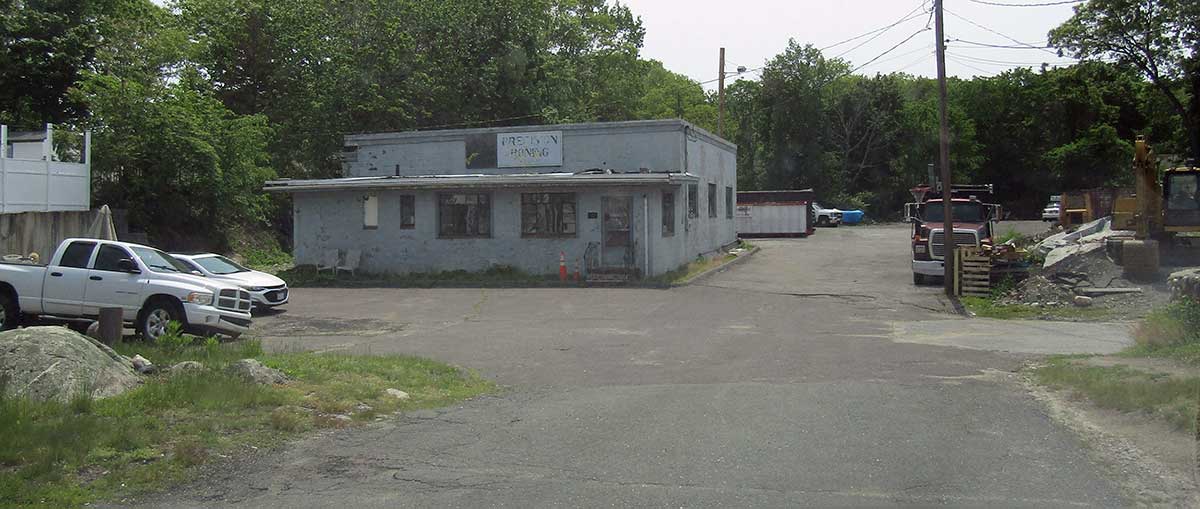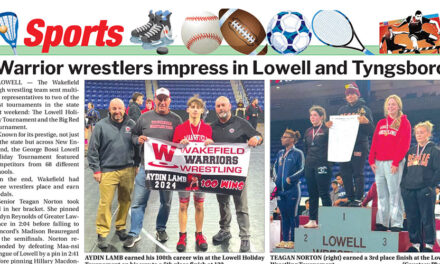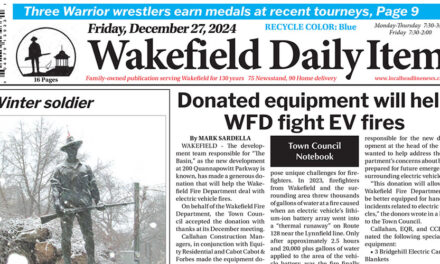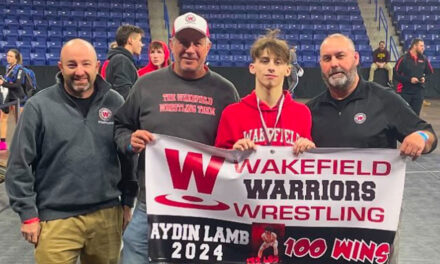By MARK SARDELLA
WAKEFIELD – The Zoning Board of Appeals continues to take a hard line on what they see as inappropriately large 40B housing projects, as evidenced during last week’s tense hearing on a 100-unit 40B proposed at 127 Nahant St.
The board has been adamant in maintaining that the project is much too big and out of context in the neighborhood.
In an effort to stop the project, last October the town filed a “Safe Harbor” claim with the state, asserting that Wakefield has made sufficient progress toward creating new affordable housing to qualify for a moratorium. The Safe Harbor claim was denied but the town has appealed that decision.
In the meantime, ZBA hearings on the project continue.
At last week’s hearing, Peabody attorney Jason Panos represented “The Residences at Nahant,” the entity seeking a Comprehensive Permit under the Massachusetts Chapter 40B affordable housing law.
Panos announced at the outset of last week’s hearing that the focus of the evening’s PowerPoint would be on design elements of the proposed building, as previously requested by the board.
But he never got to show the PowerPoint presentation.
Board members expressed surprise when told that the focus of the presentation would be on design.
“I thought we were talking more about massing than design,” ZBA member Chip Tarbell said. He said that he was expecting to discuss how the project fits into the neighborhood and possibly a reduction in size.
Chairman Tom Lucey agreed. “I thought we were pretty clear on that,” he said.
But Panos insisted that any discussion of reducing the density of the project was premature at this early stage, when the project hasn’t even gone through peer review.
Lucey said that he didn’t see how the board could get into building design without clarity on the size and scale of the project.
“Massing will drive architecture,” he said. Talking about architecture without having the massing issue settled, he added, “seems like we’d be spinning our wheels.”
He said that discussing architecture at this point would not be the best use of everyone’s time.
“It all comes down to massing,” he said.
Board member Greg McIntosh observed that the project as presented took no cues from the surrounding buildings. He preferred to see “a more residential look than a big urban building.”
ZBA member Joe Pride agreed.
“We told them a month ago that it was too big,” he said. “They had a month to work on it and just came back with the same thing.”
Board members agreed that it was time to create a subcommittee to work with the applicant to get the project to a point where the full board felt comfortable proceeding.
ZBA member Mickey Feeley said that there would need to be a “spirit of cooperation” for the project to move forward. “There’s been no sign of that so far,” he said.
Panos insisted that the project should be viewed in the context of the Comprehensive Permit Law under Chapter 40B.
“We are not going to start making density concessions when we haven’t even begun peer review,” he said. “This just isn’t how the Comprehensive Permit statute and associated regulations work. I’ve been doing this for 20 years and I’ve never come out of the gate with a density reduction.”
Panos said that reductions in density can happen as a result of peer review and traffic studies, but not at the start of the process.
Lucey cited his own experience.
“I’ve been on this board for a long time,” he said, “and I’ve never, even with comprehensive permits, had applicants not willing to at least engage in discussions.”
Lucey noted that the town’s public safety officials have expressed serious concerns about the project and those concerns are based on massing and the scale of the project.
Panos said that he was perfectly willing to discuss those matters.
“We just don’t discuss density until peer review leads us to that,” he said, “and right now, we haven’t even started peer review.
Lucey reiterated his earlier point.
“I had hoped we’d have a little more accommodation to be willing to work with us,” he said. “I’m hearing that you’re not going to be very flexible. I hope that’s not the case.”
Lucey then appointed a subcommittee of himself and Tarbell to work on some of the concerns expressed by the board and other town officials.
Tarbell suggested the subcommittee process might constitute peer review.
But Panos said that peer review is usually done by a professional consultant hired by the town that the developer pays for.
Tarbell said that the Wakefield ZBA “has never done that. We have plenty of people with knowledge on the board,” he said. “We have plenty of town officials, the engineering department and safety officials that review the project.”
Lucey said that the subcommittee would get to work right away.
No one from the public offered any testimony at last week’s hearing.
The board voted to continue the hearing to its Feb. 14 meeting.

THE ZONING BOARD OF APPEALS is not happy with a proposal to build a 100-unit 40B affordable housing project on this 127 Nahant Street site. (Mark Sardella Photo)




